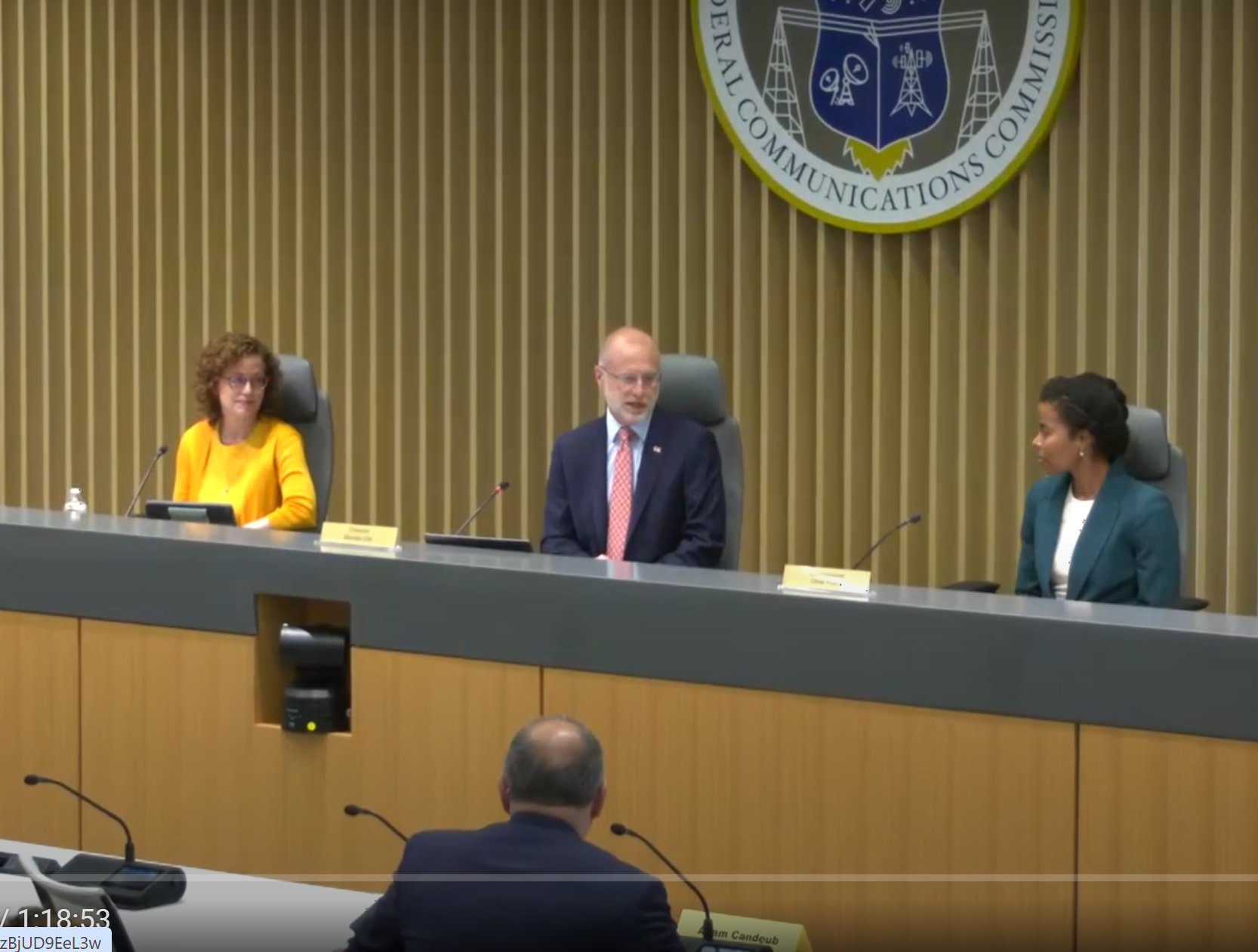Appeals court debates FCC authority in broadcast “flag” case
A three-judge U.S. appeals court panel last week challenged FCC regulations requiring certain video devices to include broadcast “flag” technology that could prevent them from to copying digital television programs and distributing them over the Internet.
Two of the judges were opening hostile to the FCC. U.S. Circuit Judge Harry T. Edwards told the commission that it “crossed the line” in requiring the new anti-piracy technology in next-generation television devices. He questioned the FCC’s authority to impose regulations affecting television broadcasts after such programs are transmitted to viewers.
If allowed by the courts, broadcast flag technology will be required after July 1 for televisions equipped to receive digital signals, as well as many personal computers and VCR-type recording devices. The rule would permit entertainment companies to designate, or flag, programs to prevent viewers from copying shows or distributing them over the Internet.
Though the court’s majority took issue with the FCC, they also questioned the legal basis for the lawsuit before them. Consumers groups, including library associations, contested the FCC requirements in the lawsuit, asserting that the rules will drive up prices of digital television devices and prevent consumers from recording programs in ways permitted under copyright laws.
If the appeals panel decides that the consumers groups can’t contest the FCC requirements, it would dismiss the case regardless of any concerns about the anti-piracy technology.
To the entertainment industry, the FCC’s flag rule is a necessary precondition to its participation in the DTV transition. Motion picture studios have argued that without the rule, content creators would have no incentive to provide digital content over the airwaves, because viewers could simply pull video streams off air and redistribute them to millions of viewers over the Internet.
A decision by the court is expected within weeks.
The professional video industry's #1 source for news, trends and product and tech information. Sign up below.
